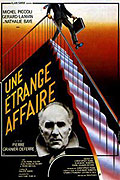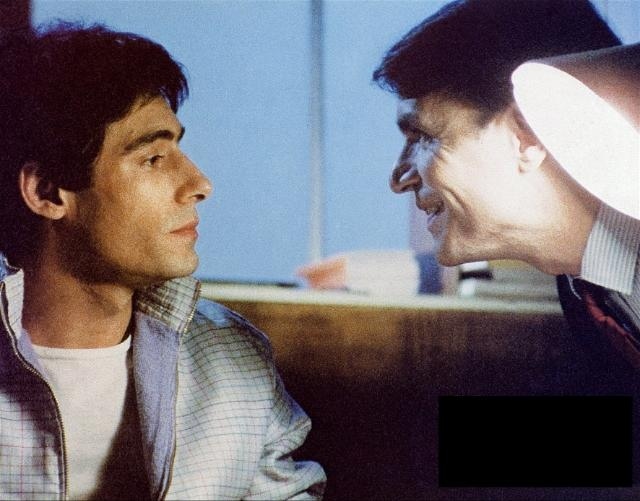Réalisation:
Pierre Granier-DeferrePhotographie:
Étienne BeckerMusique:
Philippe SardeActeurs·trices:
Michel Piccoli, Gérard Lanvin, Nathalie Baye, Jean-Pierre Kalfon, Dominique Blanchar, Jean-François Balmer, Dominique Zardi, Nicolas Vogel (plus)VOD (3)
Résumés(1)
Tout abandonner : Nina (Nathalie Baye), sa femme, sa mère (Dominique Blanchar), ses amis, le poker et meme la grand-mère Yette (Madeleine Cheminat), et le chien. Ou plutot s'éloigner, peu à peu, mais inexorablement : voilà le curieux destin de Louis Coline (Gérard Lanvin), jeune cadre au service publicité. Quitter un amour partagé, des affections sures, les dimanches en famille, les soirées entre amis, pour Bertrand Malair (Michel Piccoli), son nouveau patron. Que sait-on de Malair, personnage énigmatique suivi comme son ombre par deux acolytes, François Lingre (Jean-Pierre Kalfon), et Paul Belais (Jean-François Balmer) ? Malair fascine Louis et l'attire un peu plus chaque jour : encouragements, marques de confiance, présentation au cercle de ses amis - tout ce dont ce jeune homme s'était pris à rever. Le reve se réalise, il s'y plonge et s'y enferme, y trouve l'exaltation peut-etre d'une puissance qu'il croit partager, mais en perdant toute mesure. Car tel est le pouvoir de Malair : vous séduire, vous aimer, croyez-vous, mais aussi tout vous prendre sans rien vous donner. Le jour où il vous quitte, vous n'etes plus personne. (Parafrance Films)
(plus)Critiques (1)
Louis is a young advertising expert who has the misfortune of being stuck working at a company that doesn't even care about advertising. He feels unappreciated, but he doesn't have enough will and courage to slam the door. An unexpected change in the manager's position provides a chance for quick professional advancement. However, career advancement means that two sharply different characters will meet. One is an experienced director as a dictator, pedant, bulldozer, and manipulator, with a strong personality who desires dominance and patiently transforms his surroundings to his liking. The other is a young man, a diligent but characteristically and spiritually shallow weakling, who looks up to his boss with respect as his guru. There is no real struggle actually happening. Louis is gradually dismantled, absorbed, and becomes dependent on his superior. After the boss travels overseas, he feels betrayed, and abandoned, and can't exist meaningfully without him. The film creates a certain tension, an expectation of things to come. The resolution is ultimately quite banal, and the concept could have been worked with much more radically. However, the moderate ending allows the film to stay within the realm of reality - it is convincing. The message is not particularly profound, but Louis' story expresses a more general truth about people. Parts of the population like being under the shadow of great authority, willingly adapting, and seeking protection from the uncertainty of an unstable world. Here we can look for the cause of the popularity of some authoritarian politicians and regimes. In the character of the experienced actor veteran Michel Piccoli, the film gained an ideal representative of the company boss. Calm, focused, fatherly when needed, and otherwise entertaining, self-confident, and unpredictable, he weaves his web and knows well that his prey will not escape him. Overall impression: 75%.
()

